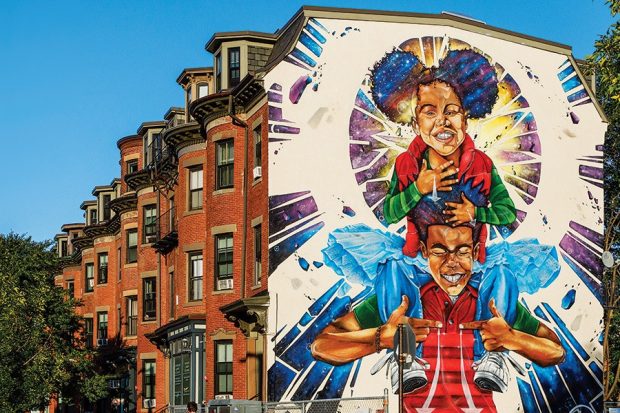
Street Art is an art form that is associated with New York like no other city. But if you want to see underground trains full of graffiti, you are a little late – they have hardly existed since the 1990s. Street art that is unsolicited on house walls, passageways, or shop bars is also in short supply.
Today you can find many exciting works in ‘Street Art Galleries’ – areas that have been approved by the owners for street art. There you can see works by established street artists, but also works by artists who are only just beginning to make a name for themselves. After completion, the work usually stays a few months until the next street artist can get to work.
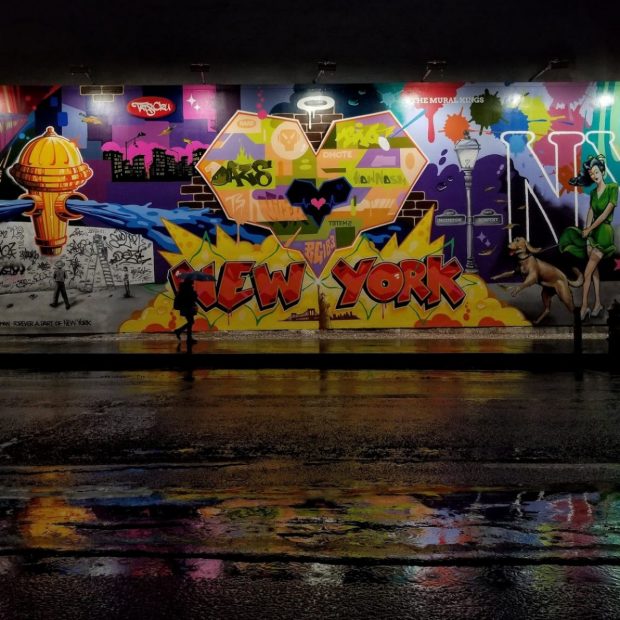
Bowery Mural – Tats Cru
The Bowery Wall is one of the oldest street art galleries in New York. Some of the most famous artists on the scene put work on the wall, including the legendary Keith Haring (1958-1990). The Bowery Wall is located in the East Village, a district in southern Manhattan that has long been known for its broken-creative atmosphere.
READ: 190 Bowery: Life in an Old 72-room Bank in the Middle of Manhattan
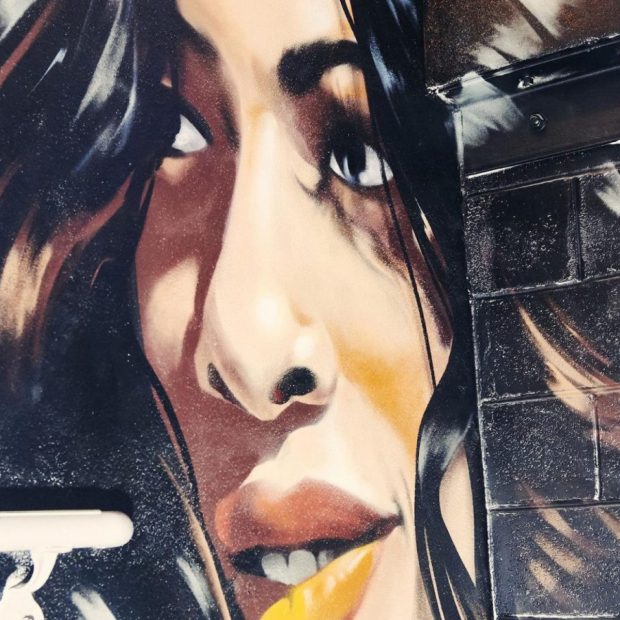
Citizen M
The Museum of Street Art is a tribute to the ‘5Pointz’, a disused factory in Queens with 200 artist studios, on whose walls you could see spectacular street art for years. Not only visitors but also tens of thousands of subway passengers enjoyed the art because the subway rattled past the old factory above ground. In 2013 the 5 Pointz had to make room for condominiums.
READ:The Bowery: The Street That Shows The Changes of New York
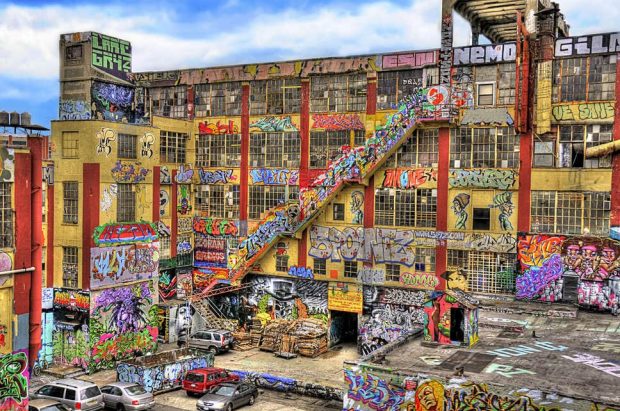
The 5 Pointz in Queens – Photo Ben Alter
The Citizen M Bowery Hotel on Manhattan’s Lower Eastside has hired artists who worked on the Five Pointz to create art for the hotel’s public areas. In the entrance hall and the corridors of the 20-story building, you can now see works by famous New York street artists such as SEE TF, Meres One, or Christian Cortes. The whole thing was named ‘Museum of Street Art’, although it has little to do with a traditional museum.
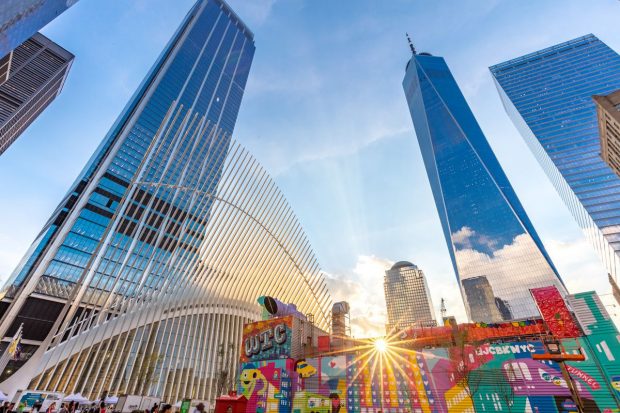
Photo – Roger Maris
One can hardly imagine a poignant place for the healing power of art than the World Trade Center area. The “Mural Project” on the former “Ground Zero” shows works by 6 street artists, including Stickymonger and Boogie Rez. What all works have in common are the playful, cheerful motifs of the works. These works will not be replaced by others in the foreseeable future.
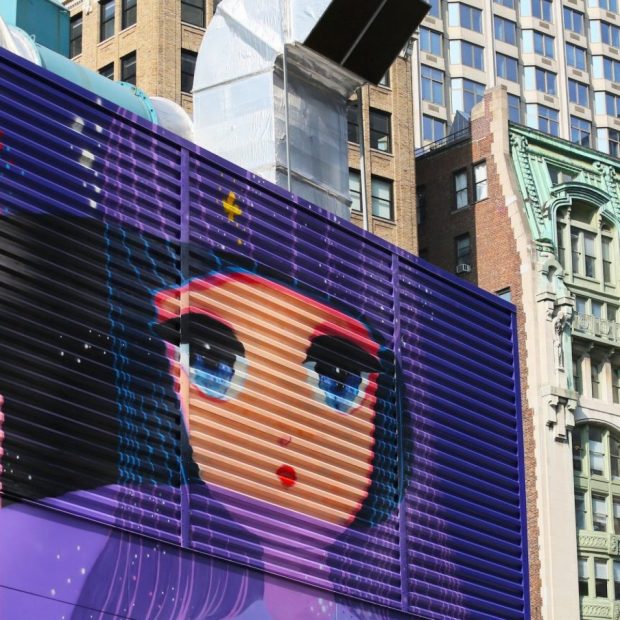
Photo – Roger Maris
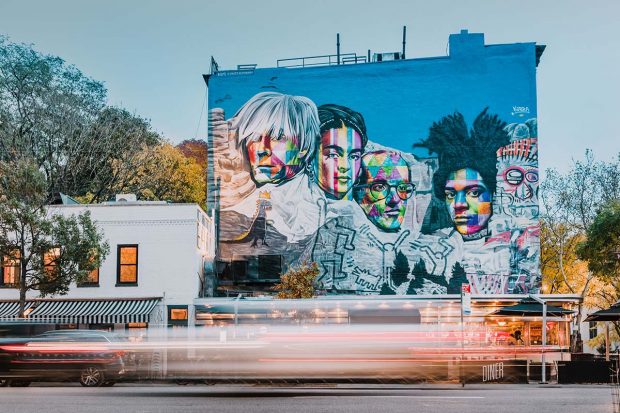
Photo by Sylvie Bonne, author of A NYC Guide for Instagrammers
The Brazilian street artist Eduardo Kobra, known as Kobra, began his career in 1987 at the age of 12 in his native Sao Paulo. Since then he has created over 3,000 murals on five continents.
READ: Emirates Special Meal: Here You Can Find Information about the Emirates Special Meal for Passengers
He made his New York debut in 2012 with the mural “The Kiss”. The work in the best location in the High Line Park has been seen by millions. Six years later he came back to New York and painted 18 spectacular works in just a few months. Most of the plants are in Manhattan, with a few in Brooklyn.
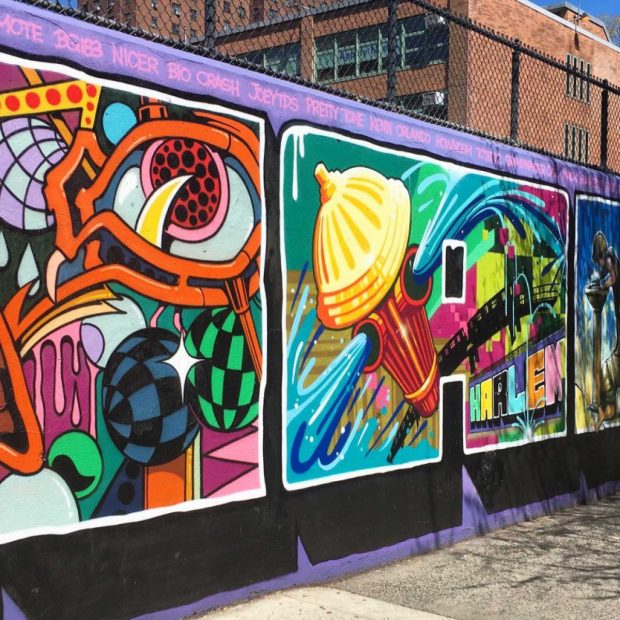
Welcome to Harlem – Foto Warburg Realty
Grafitti activist Ray “Sting Ray” Rodriguez was allowed in 1980 to convert the interior walls of the Jackie Robinson playground in East Harlem into an exhibition space for street art. Sting Ray wanted to give young street performers a space where they could express themselves without fear of the police. East Harlem was one of the most notorious neighborhoods in all of New York at the time. Forty years later, the Hall of Fame still exists. The centerpiece is the huge mural ‘Welcome to Harlem‘ – a journey through the history of street art in New York.
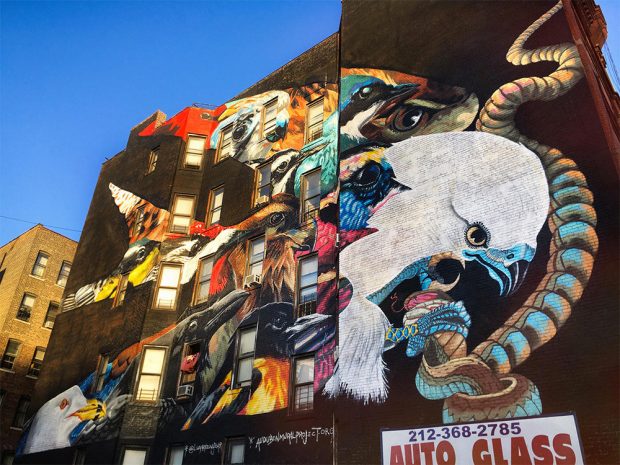
Photo – Mika Fernandez
With his groundbreaking ‘Birds of America’, ornithologist John James Audubon wrote a book in 1827 that would long remain the most important reference work for American ornithologists. Audobon was not only the author but also the illustrator of Birds of America. (Incidentally, a copy of the first edition was auctioned for 9.65 million US dollars in 2018).
The Audubon Society named after him, a nature conservation organization, started the Audobon Mural (mural) project 6 years ago together with gallerist Avi Gitler. The aim is to create works by 300 birds that are threatened by climate change in northern Manhattan, the old place of activity of Audobon. There are currently almost 120 plants.
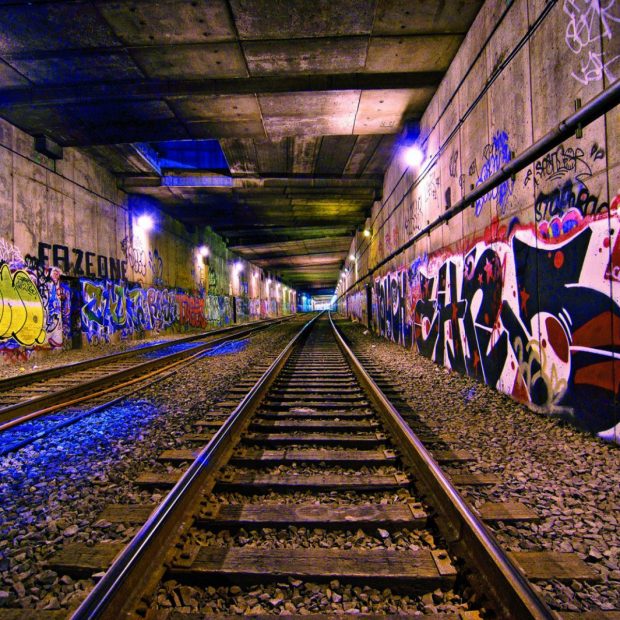
Photo – Roger Maris
In the 1930s, a train tunnel was built under Riverside Park on Manhattan’s west side. After it was shut down in 1980, homeless people came to live here. It is estimated that up to 100 people had their home here at times. In 1991, Amtrak, the American counterpart to the Federal Railroad, drove out the homeless and put the tunnel back into operation. At that time, graphic artists discovered the tunnel for themselves, above all Chris “Freedom” Pape, after which the building is also unofficially named. Street artists still come into the Freedom Tunnel, although it’s forbidden to be there.
It is possible to visit the tunnel, but you could be prosecuted for unauthorized entry.
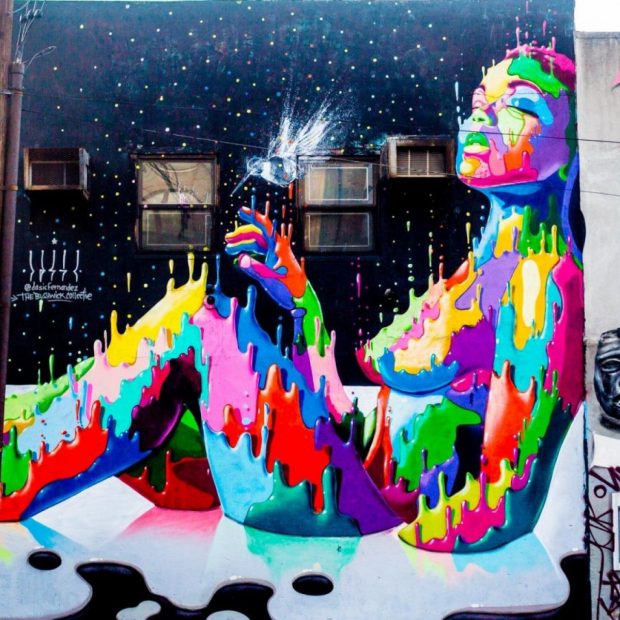
Photo – Bushwick Collective – Facebook
Up until 8 or 10 years ago, the Brooklyn neighborhood of Bushwick was notorious for crime and decay across New York. Since then, the district has been transformed into a bohemian and trendy residential area (of course the problems that gentrification brings with it are inevitable).
Joe Ficolora, son of Sicilian immigrants, still knows old Bushwick well. The 41-year-old grew up here and experienced the murder of his father when he was 12. Joe never wanted to leave his hometown, on the contrary, he wanted to make a contribution to Bushwick.
In 2013, Ficolara, a street art afficianado, had an idea. He wanted to bring the many of the often still desolate blocks in Bushwick to life with street art. Ficolora was able to convince many homeowners and artists of his project and in the following years the largest collection of street art in New York was created under the name ‘Bushwick Collective‘. A wide variety of works by artists from all over the world can be seen on the walls of houses, restaurants, garages, old factories, or site fences.
Like us on Facebook for more stories like this: